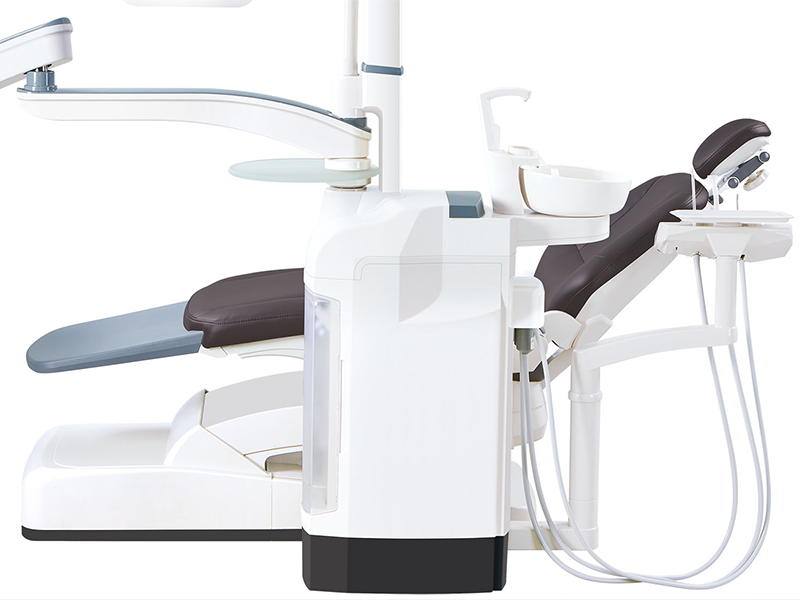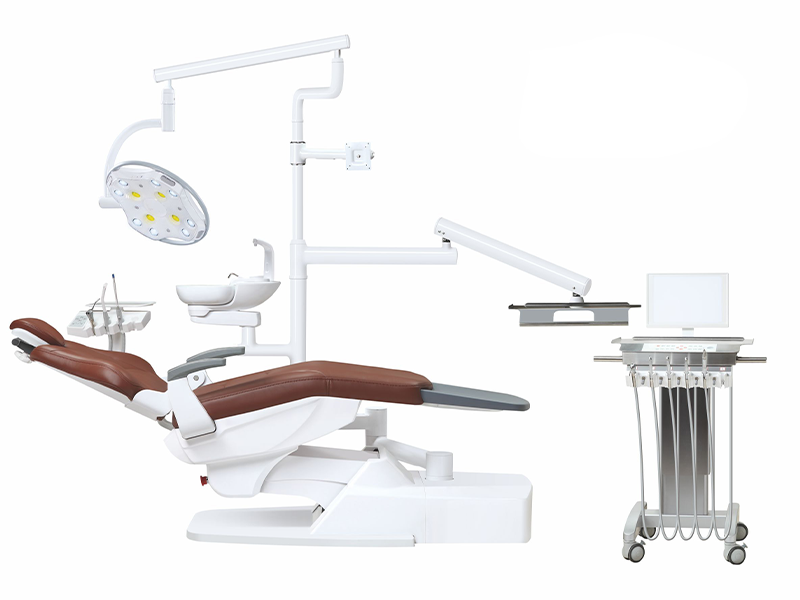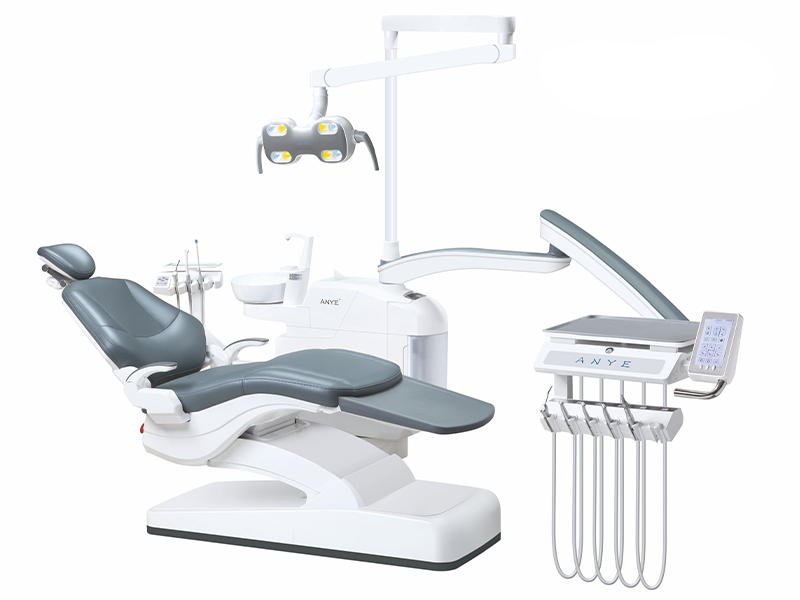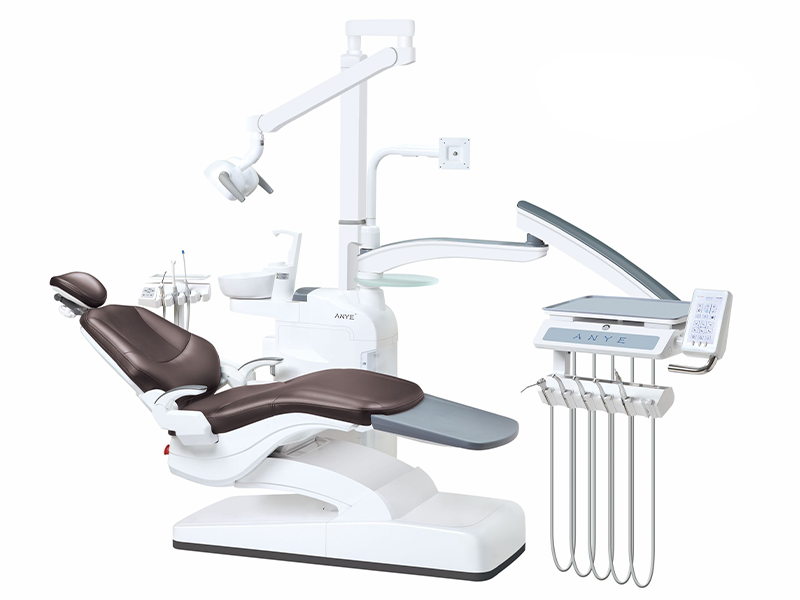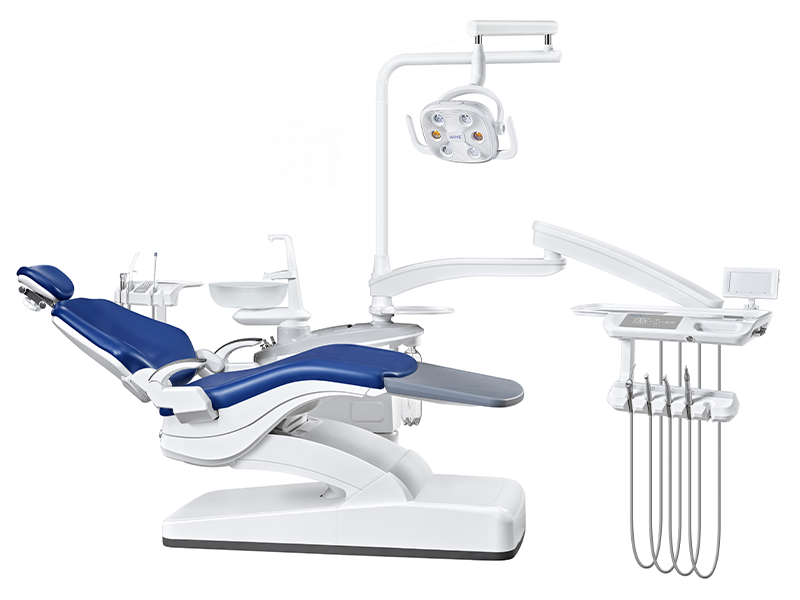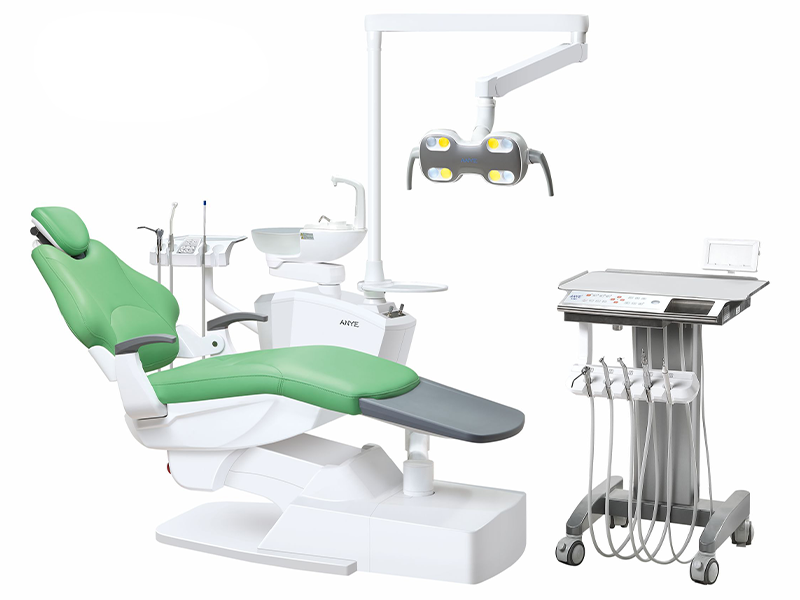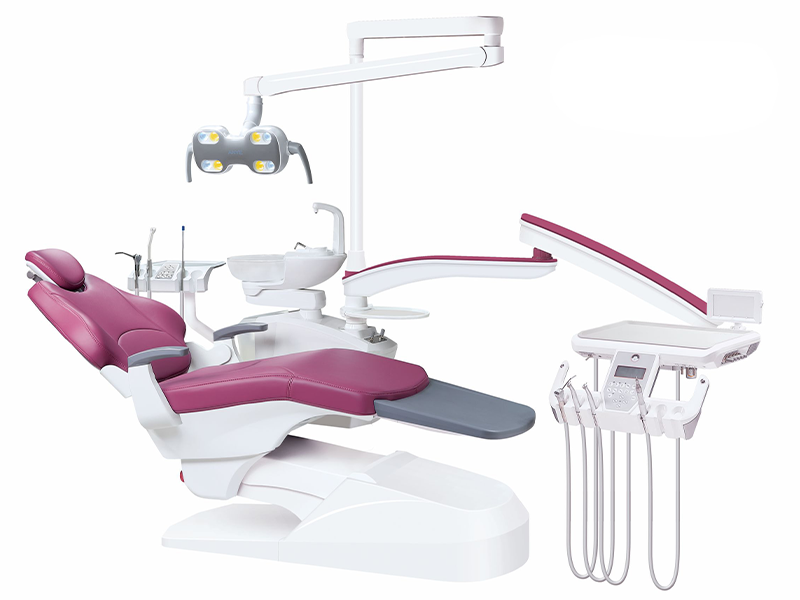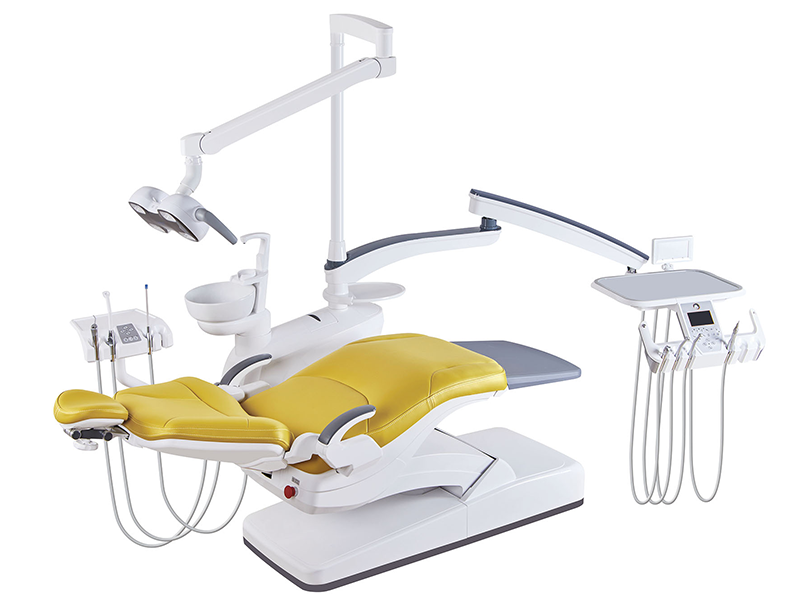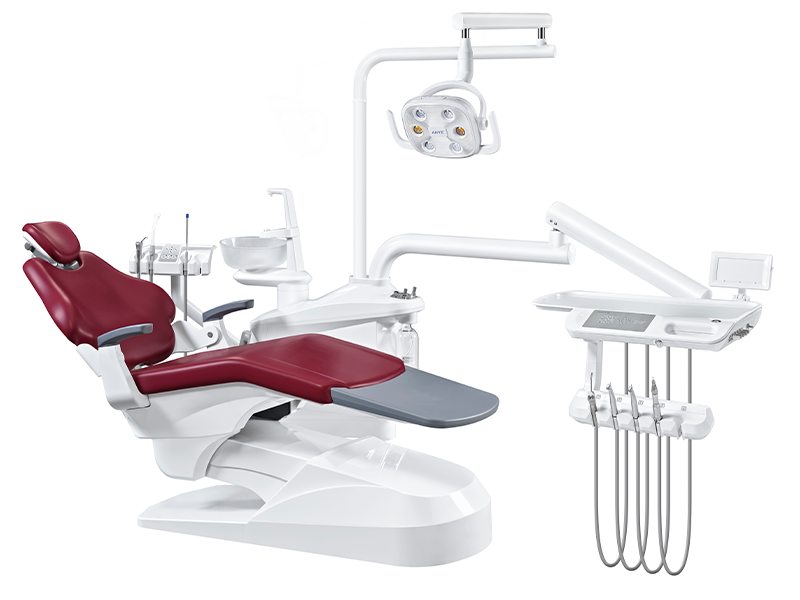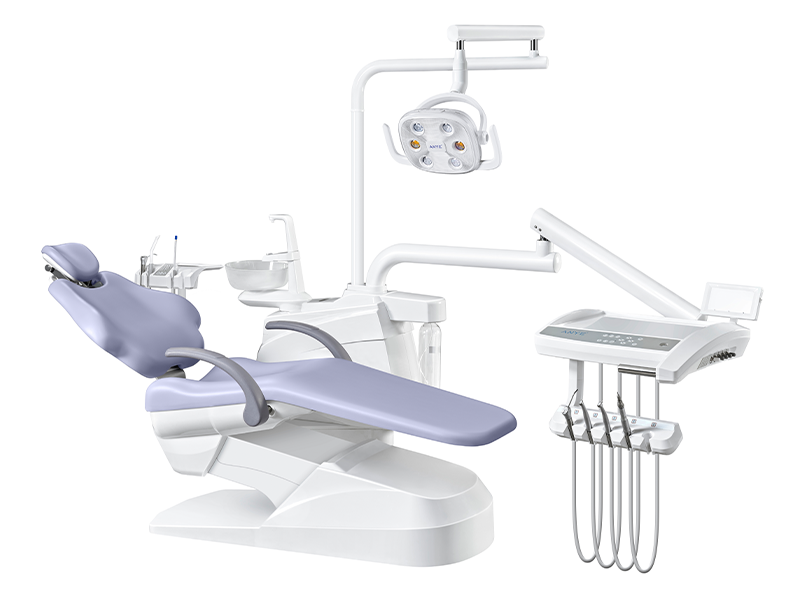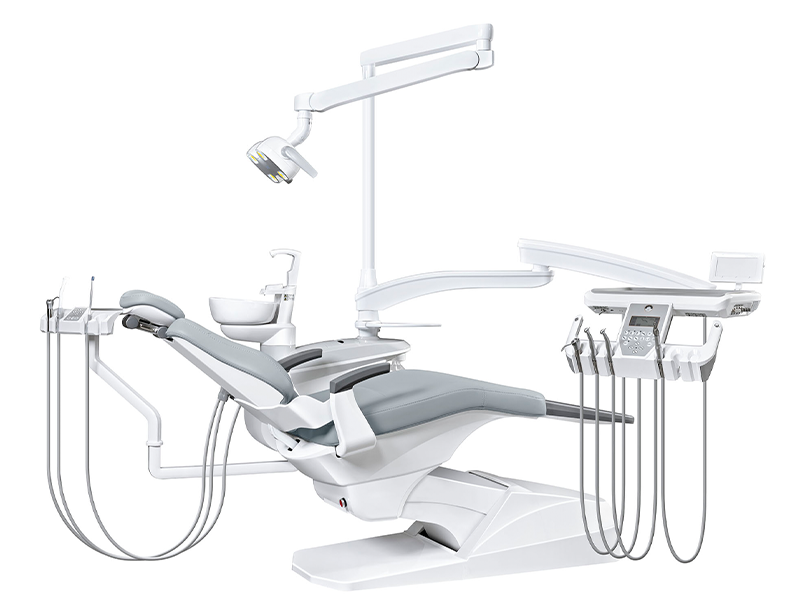Did you know that 90% of dental procedures rely on a reliable air compressor to power essential tools and ensure patient comfort? If you’re running a dental practice, you know how critical it is to have equipment that works seamlessly every time. At Anye Dental, we understand the challenges of finding the right dental chair air compressor—one that’s efficient, quiet, and built to last.
In this guide, we’ll walk you through everything you need to know about dental air compressors, from key features to maintenance tips and how to choose the best one for your practice. Whether you’re upgrading your current setup or starting fresh, we’ll help you make an informed decision. Ready to discover how the right compressor can transform your practice? Let’s get started!
For more insights, check out our related articles on choosing the best dental chair and maintaining dental equipment.
Why Are Dental Air Compressors So Important?
Dental air compressors are the unsung heroes of modern dental practices, providing the clean, dry, and pressurized air needed to power essential tools like high-speed drills, scalers, and other pneumatic instruments. Without them, the efficiency and safety of dental procedures would be compromised. At Anye Dental, we specialize in dental chair solutions that integrate advanced air compressor technology to ensure optimal performance and patient care.
The Critical Role of Dental Air Compressors
Dental air compressors are indispensable for delivering the consistent air pressure required to operate high-speed handpieces and other equipment. Their importance can be summarized in three key areas:
- Powering High-Speed Drills: High-speed drills rely on precise air pressure to achieve the torque and RPMs necessary for efficient treatments. A reliable air compressor ensures these tools perform at their best, reducing procedure time and improving outcomes.
- Ensuring Patient Safety: Contaminated air can lead to infections or discomfort. Advanced filtration systems in modern compressors remove moisture, oil, and impurities, ensuring the air supply is safe for both patients and practitioners.
- Maintaining Operational Efficiency: A steady supply of clean air minimizes equipment downtime and maintenance, allowing dental practices to operate smoothly.
For example, Anye Dental’s Silent Air Compressors for Dental Chairs are designed to deliver consistent performance while reducing noise levels, creating a more comfortable environment for everyone in the clinic.
Key Features of a High-Quality Dental Air Compressor
When choosing a dental air compressor, it’s essential to prioritize features that enhance performance and reliability. Here’s what to look for:
- Advanced Filtration Systems: Multi-stage filtration removes contaminants, ensuring the air is clean and safe.
- Built-in Drying Technology: Prevents moisture buildup, which can damage equipment and compromise air quality.
- Noise Reduction: Quiet operation improves the patient experience and creates a calmer workspace.
- Durability: High-quality materials and robust construction ensure long-lasting performance.
Anye Dental’s Dental Unit AY-215 Series incorporates these features, making it a top choice for practices seeking reliable and efficient air compressors.
Types of Dental Air Compressors
When selecting the right dental air compressor for your practice, understanding the differences between oil-lubricated and oil-free models is critical. Each type offers unique advantages and challenges, making it essential to evaluate your practice’s specific needs. Below, we explore the key features, benefits, and drawbacks of both categories to help you make an informed decision.
Oil-Lubricated Dental Air Compressors
Oil-lubricated compressors use oil to reduce friction and wear on moving parts, making them a reliable choice for many dental practices.
Key Benefits:
- Quieter Operation: These compressors operate with minimal noise, creating a more comfortable environment for patients and staff.
- Durability: The lubrication extends the lifespan of the compressor by reducing wear on internal components.
- Cost-Effective: Oil-lubricated models often have a lower upfront cost, making them ideal for budget-conscious practices.
Potential Drawbacks:
- Risk of Oil Contamination: There’s a possibility of oil entering the air supply, which can compromise air quality and patient safety.
- Maintenance Requirements: Regular oil changes and filter replacements are necessary to maintain performance, increasing long-term upkeep.
- Heat Generation: These compressors can produce excess heat, requiring additional cooling systems in your practice.
- Air Quality Concerns: They may not meet stringent air purity standards required for certain dental procedures.
For practices prioritizing cost-effectiveness and quieter operation, Anye Dental offers reliable oil-lubricated compressors that balance performance and affordability. Learn more about their features here.
Oil-Free Dental Air Compressors
Oil-free compressors are designed to operate without lubrication, making them a modern solution for practices focused on air quality and sustainability.
Key Benefits:
- No Contamination Risk: Without oil, these compressors eliminate the possibility of oil entering the air supply, ensuring cleaner air for dental procedures.
- Low Maintenance: Oil-free models require less frequent upkeep, reducing long-term maintenance costs.
- Superior Air Quality: They produce drier, cleaner air, which is essential for precision dental tools and patient safety.
- Eco-Friendly: Operating without oil makes these compressors more environmentally sustainable.
- Regulatory Compliance: They often meet stringent healthcare air quality standards, ensuring compliance with industry regulations.
Potential Drawbacks:
- Noise Levels: Some oil-free compressors can be louder, which may be a concern in patient-facing areas.
- Higher Initial Cost: While the upfront investment is greater, the long-term savings in maintenance and air quality improvements can offset this.
Anye Dental provides advanced oil-free compressors that combine cutting-edge technology with compliance and reliability, making them an excellent choice for modern practices. Explore their oil-free models here.
Which Compressor is Right for Your Practice?
Choosing between oil-lubricated and oil-free compressors depends on your practice’s priorities. If budget and quiet operation are your main concerns, oil-lubricated models may be the better option. However, if air quality, sustainability, and low maintenance are more important, oil-free compressors are the way to go.
Anye Dental offers a range of both oil-lubricated and oil-free compressors, ensuring you find the perfect fit for your practice’s needs. Explore their full collection here to enhance your dental equipment with reliable, high-performance solutions.
Key Factors to Consider When Choosing a Dental Air Compressor
Air Flow and Pressure
Cubic Feet Per Minute (CFM) and Pounds Per Square Inch (PSI)
When selecting a dental air compressor, airflow (CFM) and pressure (PSI) are the most critical factors to evaluate. Each dental chair typically requires 2 CFM of airflow, so if your practice operates multiple chairs, ensure the compressor can deliver this volume consistently. For pressure, most dental handpieces function optimally at 90 PSI. A compressor that reliably maintains this pressure ensures smooth operation and extends the lifespan of your tools. Think of it like fueling a car—your dental instruments need the right airflow and pressure to perform effectively.
For practices with multiple chairs, consider compressors like the Anye Dental AY-215A1, designed to handle high-demand environments.
Tank Size and Power
Tank Size
The size of the compressor’s tank directly impacts its ability to maintain consistent airflow. A larger tank is ideal for practices with multiple dental chairs, as it minimizes air supply fluctuations during procedures.
Motor Power
Motor power, measured in horsepower (HP) or kilowatts (kW), determines the compressor’s capacity. For most dental practices, a motor with 1 to 5 HP is sufficient, depending on the number of tools and chairs in use. The motor acts as the heart of the compressor, so it must be robust enough to handle your practice’s demands without strain.
For example, the Anye Dental AY-215B2 features a 3 HP motor, making it suitable for mid-sized practices.
Noise Level
A noisy compressor can disrupt the calm environment of a dental practice. Look for models with noise-reduction technology or sound-dampening enclosures. Ideally, choose a compressor that operates at 65 dB or lower—comparable to a quiet conversation. This ensures a comfortable atmosphere for both patients and staff.
The Anye Dental AY-215C3 is engineered with advanced noise-reduction features, making it a quiet yet powerful choice.
Filtration and Drying Systems
Clean, dry air is essential for patient safety and effective dental procedures. Opt for compressors with advanced filtration systems, such as:
- Multi-stage filtration systems: Remove contaminants from the air supply.
- Coalescing filters: Trap moisture and oil vapors effectively.
- Desiccant dryers: Absorb residual humidity to prevent bacterial growth and protect sensitive instruments.
Delivering contaminated air is akin to using dirty water—it poses serious health risks and compromises the quality of care.
For reliable air quality, explore the Anye Dental AY-215B5, which includes a multi-stage filtration system.
Maintenance Requirements
Regular maintenance is key to keeping your dental air compressor in peak condition. Consider the following:
- Service intervals: Follow the manufacturer’s recommendations for maintenance frequency.
- Ease of access: Ensure filters and components are easy to inspect and replace.
- Availability of replacement parts: Choose brands like Anye Dental, known for reliable part availability to minimize downtime.
A well-maintained compressor enhances operational efficiency and ensures long-term reliability.
Best Practices for Dental Air Compressor Maintenance
Maintaining your dental air compressor is essential for ensuring its longevity and optimal performance. By following a structured maintenance routine, you can prevent costly repairs and keep your equipment running efficiently. Below, we outline key steps to help you maintain your dental air compressor effectively, ensuring a safe and productive environment for your practice.
1. Monitor and Replace Filters Regularly
One of the most straightforward yet impactful ways to care for your dental air compressor is by regularly monitoring and replacing its filters.
- Frequency: Check filters weekly. Replace them immediately if they appear dirty or clogged. For optimal performance, replace filters at least once a year.
- Importance: Clean filters prevent contaminants from entering the compressor system. Dirty filters can compromise air quality, posing health risks to patients and reducing the compressor’s efficiency.
By maintaining clean filters, you not only enhance your compressor’s performance but also contribute to a healthier practice environment.
2. Drain Moisture from the Tank Daily
Moisture buildup in the compressor tank can lead to rust and corrosion, significantly impacting its efficiency and lifespan.
- Procedure: Drain moisture daily or after each use, depending on how often the compressor is used.
- Reason: Regular draining prevents rust formation, ensuring your equipment operates effectively and lasts longer.
Neglecting this step can result in expensive repairs, making it a critical part of your maintenance routine.
3. Inspect Hoses and Fittings for Leaks Monthly
Regularly checking hoses and fittings for leaks is vital for maintaining optimal compressor performance.
- Inspection: Examine all hoses, fittings, and connections monthly for signs of wear or leaks. Tighten any loose connections immediately to prevent air loss.
- Impact: Leaks can cause pressure loss, leading to inefficient operation and higher energy consumption. Over time, this can result in premature wear and tear on your compressor.
Proactively addressing leaks helps maintain efficiency, reduce energy costs, and ensure reliable operation.
4. Schedule Annual Professional Servicing
While regular maintenance is crucial, annual professional servicing is equally important for your dental air compressor.
- Recommendation: Have a certified technician perform a thorough inspection annually. This should include checking electrical systems, lubrication levels, and all other components.
- Benefits: Professional servicing identifies potential issues early, preventing costly repairs. It also ensures compliance with health regulations, giving you peace of mind that your equipment is safe for patient use.
Investing in professional servicing protects your equipment and enhances the overall functionality of your dental practice.
Additional Maintenance Tips
Supplementary Maintenance Practices for Dental Air Compressors
To ensure your dental air compressor operates at peak performance, consider these additional maintenance strategies beyond the basics. These steps will help you maximize efficiency, extend the lifespan of your equipment, and maintain a reliable dental practice.
1. Review the Manufacturer’s Manual
Every dental air compressor model has unique maintenance requirements. Start by thoroughly reading the user manual to understand specific recommendations from the manufacturer. This ensures you’re following tailored guidelines for optimal performance and longevity. For more details on dental chair maintenance, visit Anye Dental’s Maintenance Guide.
2. Keep the Compressor Clean
Regularly clean the exterior of your compressor to remove dust and debris. A clean unit promotes better airflow, prevents overheating, and reduces wear on internal components. This simple step can significantly improve efficiency and reduce the risk of breakdowns. Learn more about cleaning techniques in Anye Dental’s Hygiene Guide.
3. Monitor and Maintain Oil Levels (If Applicable)
For oil-lubricated compressors, check oil levels frequently and top up as needed. Replace the oil according to the manufacturer’s schedule to prevent overheating and internal damage. Proper lubrication is key to smooth operation and extended equipment life. Explore our oil-free technology in Anye Dental’s Product Line.
4. Inspect Air Filters Regularly
Clogged air filters can restrict airflow and strain your compressor. Inspect and clean or replace filters as recommended. This ensures consistent air quality and reduces the risk of performance issues. For more on air quality, check out Anye Dental’s Air Compressor Solutions.
5. Schedule Professional Servicing
While regular at-home maintenance is essential, professional servicing ensures deeper inspections and adjustments. Schedule routine check-ups with a certified technician to address potential issues before they escalate. Discover our servicing options in Anye Dental’s Support Page.
Why Choose Anye Dental for Your Maintenance Needs?
At Anye Dental, we’re committed to helping you maintain your equipment with ease. Our dental air compressors are designed with features that simplify upkeep:
- Oil-free technology eliminates the need for oil changes, reducing maintenance time.
- Quiet operation ensures a comfortable environment for both staff and patients.
- Durable construction minimizes wear and tear, ensuring long-lasting performance.
Explore our range of dental air compressors today or contact our team for personalized advice. Let us help you keep your practice running smoothly and your patients smiling. Visit our Product Page for more details.
Additional Resources
For more insights on maintaining dental equipment, check out these articles:
- Dental Chair Air Compressors: Essential Information
- Top 5 Tips for Prolonging the Life of Your Dental Equipment
By following these maintenance best practices, you can protect your investment, enhance patient care, and ensure your dental practice operates at its best.
Conclusion: Elevate Your Dental Practice with the Right Air Compressor
Choosing the right dental air compressor is crucial for ensuring your practice runs smoothly and your patients remain comfortable. Did you know that 90% of dental tools rely on compressed air to function effectively? At Anye Dental, we understand the challenges of finding a reliable, efficient, and quiet compressor that meets your needs. This guide has walked you through key features, maintenance tips, and the benefits of selecting the best compressor for your practice.
Whether you’re upgrading your current system or starting fresh, Anye Dental offers a range of high-quality compressors designed to enhance your workflow. Ready to take the next step? Explore our dental unit solutions and discover how we can help you create a more efficient and patient-friendly practice today!

